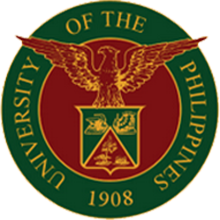Montefrio, M. J. F., & Saguin, K. K. (2025).
They sprout everywhere: Urban agriculture experimentations in Metro Manila.
Environment and Planning E: Nature and Space.
Publisher's VersionAbstractUrban agriculture experiments in Asia's metropolises are often spontaneous assemblages that unfold with diverse trajectories. Rather than being confined to the laboratories and field sites of state and market institutions, many such experiments escape or exceed the knowledge production spaces of technocrats, scientific professionals, and planners. Instead, knowledge is co-produced within a network of agentic actors, which also includes fledgling gardeners, local government officials, non-profit organizations, experienced rural farmers, culinary professionals, and even nonhumans. Some emergent networks are unlikely alliances forged across class lines, rural-urban divides, and political spectra. Spontaneous, diffuse, and polycentric, urban agriculture experiments complicate our understanding of the governance of urban experiments and urban environments. This paper explores the polycentric governance of urban agriculture experiments in Metro Manila, a highly dense and fragmented megacity in Southeast Asia. Drawing on observations in urban agriculture spaces and in-depth interviews with urban farmers and representatives from state and non-state institutions, this paper illustrates how polycentric urban agriculture experiments in Metro Manila reflect the ambivalences—both the promises and struggles—of urban experimentation. On the one hand, the socio-material relations emerging from urban agriculture experiments demonstrate transformative promises. On the other hand, while creativity and innovation sprout out of the metropolis's cracks and fissures like tiny seedlings of hope, many of them are ultimately stunted by Metro Manila's adverse political and economic realities. Whether these experiments can eventually influence urban governance and planning to improve the lives of Manileños remains a question.
McFarlane, C., Saguin, K., & Cunanan, K. (2025).
Density textures: the crowd, everyday life, and urban poverty in Manila.
Urban Geography ,
46 (5), 1222-1241.
Publisher's VersionAbstractWhile there is a long and varied history of research on urban density, there is little work examining how high-density urbanism (HDU) is perceived and experienced amongst marginalized residents. Yet, paying attention to how residents understand density offers important insight into what density is and to how it matters for cities. Drawing on research in one of the world’s densest and most unequal cities, Manila, we develop the concept of “density textures” to address this gap. We examine density textures through three key inter-related themes: negotiating space, the unruly crowd, and material substrates. We conclude with reflections for future research.
 mcfarlane_etal_2024_density_textures.pdf
mcfarlane_etal_2024_density_textures.pdf 
